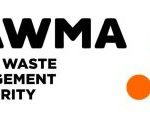
The Statewide Waste and Environmental Education Foundation in collaboration with a coalition of Nigeria’s circular economy practitioners and journalists covering the environment has launched ‘Journalists for the Environment’ to popularise habits that support the reuse, recycling, and reduction of plastic waste.
With more actors joining the ecosystem for the circular economy every year, it is becoming more vibrant.
There is a rising recognition of the business benefits of circularity to individuals, households, and the economy. One way to measure the growth and vibrancy of the circular economy in Nigeria is through driving the right awareness that allows every household to separate its waste from source and recycle every bottle and thereby reducing the amount of recyclable waste that goes to dumpsite and landfills.
The Foundation noted that until 2020, a kilogramme of collected plastic waste sold at about N20- N40. But this has appreciated to N80- N100 per kg, a 75 per cent increase. These value increases are due to the emergence of increased number of recycling facilities in Nigeria that serve as off-takers for the collected used plastic waste. Such recycling plants include but are not limited to Alkem, Polysmart, Alef Recycling, Kaltani, Sonnex, and Recyclan, etc.
A circular economy implies reducing waste to a minimum. When a product reaches the end of its life, its materials are kept within the economy wherever possible. These can be productively used again and again, thereby creating further value. It is important to recognise that food and beverage packaging is an important part of our modern lives, yet the world has a packaging problem. Like many companies that make products, we all know, our packaging has contributed to this global challenge, and we have a responsibility to help solve this problem.
Media partnerships like this are highly critical to creating the right consumer awareness that supports waste separation and recycling from source,” the Coca-Cola Director, Public Affairs, Communications, and Sustainability, Nwamaka Onyemelukwe, said, as a guest speaker at the MEDIA PARTNERSHIP FOR A CIRCULAR ECONOMY parley organised by Statewide Waste and Environmental Education Project Foundation, to recognise the role of the media in making circular economy a pop culture.
SWEEP Foundation is a grant recipient of The Coca-Cola Foundation implementing a project termed, “Waste in the City” that has brought recycling closer to households in Surulere community.
SWEEP foundation, through funding from The Coca-Cola Foundation, has been able to deploy 120 giant recycling receptacles across the community to enable citizens’ access to a buy back scheme for their recyclable waste
The concept of media partnership has been broadened with the coming of the internet. Journalists admit that with social media platforms, breaking news is no longer dependent on them. However, journalists and traditional media still have an indispensable role to play because of the checks and balances involved in the editorial processing of news content to guarantee accuracy and balance.
The executives of Journalists for the Environment include Sani Gbenga, Managing Editor, Lagos Waste Reporters; Chibuike Chukwu, Senior Correspondent, Daily Independent; Paul Omoregbe, Online News Editor and Environment Journalist, Tribune; Funke Adesoji, Environmental Correspondent and Presenter, Silverbird Television, and Adeola Ogunalade, Weekend Desk, The Nation.
In a circular economy, the practice is to share, repair, refurbish and reuse existing materials. This supports the idea of a circular economy as opposed to a linear economy which creates, uses, and discards. Waste management is everybody’s problem. A big, beautiful house in a dirty neighborhood has little value.
Onyemelukwe re-iterated that Coca-Cola had a World Without Waste vision to help collect and recycle the equivalent of a bottle or can for every one it sells by 2030, reaching a 100 per cent collection and recycling rate of all its packaging. This vision also includes ensuring all its packaging is 100 per cent recyclable by 2025 and ensuring all packaging is made with an average of 50 per cent recycled content by 2030.
“This is part of why we transitioned our Sprite from green to clear bottles to increase the collection and recycling rate. Taking colors out of bottles improves the quality of the recycled material. The initiative also has material benefits for informal waste reclaimers because of its use in higher-value products like bottle2bottle resin, it is worth more than darker colors like greens and brown, and reclaimers can earn more. Simply put that we want to drive more value for everyone within the recycling value chain” she said.
While inaugurating the Executive Committee, the President SWEEP FOUNDATION, Amb. Obuesi Phillips, explained that “We are excited to inaugurate the Journalists for the Environment group. We recognise the power of storytelling and understand journalists are critical stakeholders in this circular economy.
“Nigeria has long engaged in ‘circular activities,’ frequently in the informal sector, and motivated more by need than by environmental concerns. The formal sector is joining in, and it is showing encouraging signs of capacity growth.
The Managing Editor, Lagos Waste Reporter, Sani Gbenga, in highlighting the reuse, recycle, reduce pillars of the circular economy, said, “We focus too much on recycling without looking much to reuse and reduction. The media indeed has a vital role to play in bridging the information and knowledge gaps among consumers, manufacturers, and regulators about circularity.”











